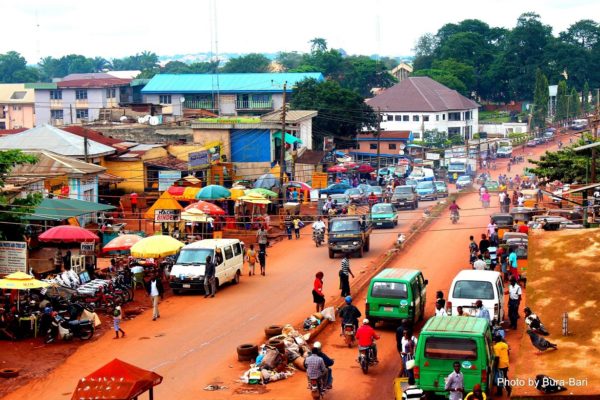
On the streets of Lagos, a boy searches
for himself in mirrors.
— Romeo Oriogun.
Saturday, 01 April, 2017
Dear Nkali,
I still don’t know why I’ve always not wanted to, not felt like telling you this. And as I look at the wall before me, I see that I have forgotten much of the details that I can’t express some of the things I saw—felt—in words. I now feel my weakness and I now understand that being a writer does not give you the ability to express everything expressly.
On my way back from a friend’s place, this morning, the trike I boarded rode through the New Market Road. Not that it’s my first time of passing through that place, no. There were many boys unloading wares, goods, drinks from huge truck and trailer vehicles which had blocked mostly the right hand sides of the roads, making it difficult for pedestrians and lesser vehicles to make their way through the almost still traffic.
There were people in the mosque not far from there, lying down, sitting with rosaries in their hands, words of prayer on their lips, in their hearts. There were also sex workers who lived in the hostels beside the mosque. The place was called Hausa Quarters, inhabited mostly by Yoruba and Hausa Muslims. You could get men selling suya, religious books, and equipment in their streets; there were women selling kunu and chilled sachet water in their stalls. I tried but still failed at imagining them performing ablutions outside the mosque. Imagining those inside the mosque performing zebiba—prostrations at every hearing of Allahu Akbar! every Friday evening.
There were also Hausa men who sold carrots, cucumbers, cabbages, lettuces and other vegetables packed properly in sacks tied to boards and boards placed on wheel barrows. The men often had smiles on their faces, smiles that highlighted the tribal marks on their faces, marks that looked like the whiskers of a cat, and sometimes like those of a shrew. There were Igbo women and girls and boys who hawked udara, ugu, ora, icheku, and akwu and fruits and sachet water and soft drinks on wheel barrows and trays balanced on their heads; or those that placed their wares on cut bags spread on the roads. Then the men from the task force who wore yellow vests with illegible inscriptions. Men who had wry and wicked smiles, long faces and and horsewhips which they used on the traders that sold their wares on the roads.
But there were boys there in New Market Road who would not leave my mind. The boys who threw packets and cartons of drinks and biscuits or other wares from inside the vehicles to those outside, the boys who then carried them into the warehouses. A little mistake and the wares could be damaged. I watched the boy who had Afro as he lifted and flung the drinks, the beads of sweat on his face, running from his chest down to his navel and into his groin, sweat running from his underarms down his sides. His torso was bare and his chest and breasts were almost flat. His nipples looked like ring-sized dark brown circles. I wished I could kiss him, his pink lips, wished I could lie in his arms, feel his brawny biceps. I was attracted by peoples’ underarms and his were the colour of ripe papaya: yellowish, brown hair strewn around it. He was wearing jersey shorts . I was becoming hard in-between my legs, struggling to escape the imprisonment of my underpants—I’d worn two at a time. I once again became angry with myself, with my physical body, my stature, my face: not because I was effeminate but because I was ugly.
There were other boys standing at the junctions that connected the road to inner streets like branches of a tree. I watched as the boys stood, hands on their wheel barrows, waiting for a customer, someone who would need their service. Others were walking towards the Sani Abacha Roundabout—which had since become a fountain from which cool droplets of water sprinkled on you as you walked near it—with their wheel barrows before them, requiring more strength for the pushing.
One of the boys was dark-skinned with dark lips and thick eyebrows which looked as if they had always been there even before he was born. His eyes weren’t brown as the former; they were black, the sort of eyes I longed to look into. I immediately knew that we could communicate with our eyes, just locking eyes with him. His biceps were not as brawny as the former but his lips were dark also. I wished I could see his heart.
And that was it.
We fall in love with so many persons that we often get confused about love and the forms it is allowed to take. But if our minds could be read by other humans; if my mouth had said, if my actions had shown, that I loved boys, I would have been lynched, dead by now. For how long will I bear this secret?
Yours,
Dika.
**************
About the Author:
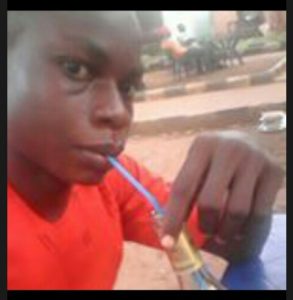 Nwanne Agwu is an Igbo-Nigerian writer and poet. He lives in Abakaliki and blogs at nwanneagwu.wordpress.com.
Nwanne Agwu is an Igbo-Nigerian writer and poet. He lives in Abakaliki and blogs at nwanneagwu.wordpress.com.


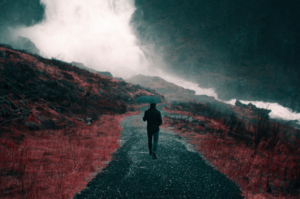
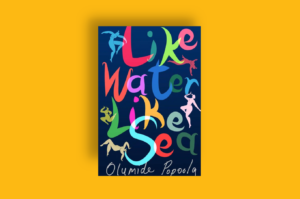
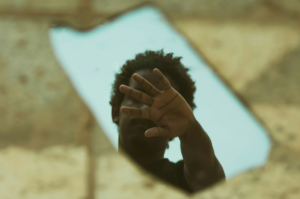
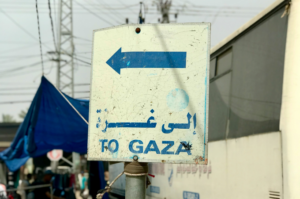
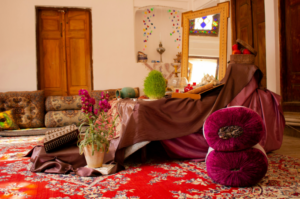
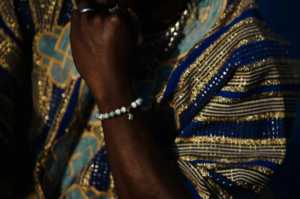

COMMENTS -
Reader Interactions